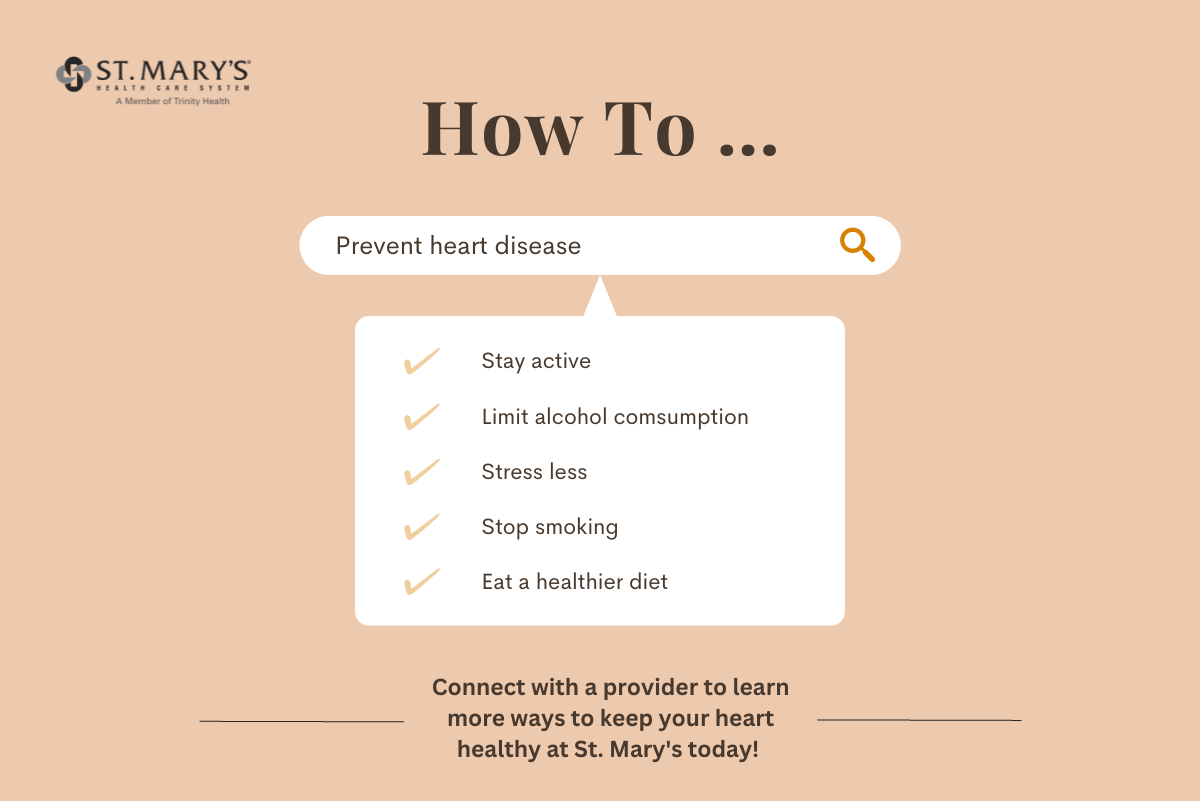Understanding the Different Types of Heart Disease
February 7, 2023Heart disease is a condition that can damage the structure or function of the heart.
Heart disease. Everyone is familiar with the term, but what does it mean? Heart disease is a condition that can damage the structure or function of the heart. Did you know that heart disease is not just one condition, but a group of different conditions with several root causes?
Types of Heart Disease
The four main types of heart disease are:
Coronary artery and vascular disease
Coronary artery and vascular disease occur from the hardening of the arteries, also known as atherosclerosis. Coronary artery disease occurs when the arteries in the heart become narrow or blocked. This can cause a heart attack and angina (chest pain). Vascular disease occurs when there is a reduced blood flow in blood vessels which can affect the function of your heart.
Heart rhythm disorders (arrhythmias)
Heart rhythm disorders (arrhythmias) occur when the heart beats in an erratic fashion; this can be too fast or too slow and can involve uneven rhythms or “skipped beats.” Some arrhythmias can have no symptoms or warning signs while others can be sudden and fatal.
Structural heart disease
Structural heart disease refers to anatomical abnormalities of the heart’s structure. This can include the valves, walls, muscles, or blood vessels of the heart. These abnormalities can be seen at birth (congenital) or obtained after birth through infection, wear and tear, or other elements.
Heart failure
Heart failure is a chronic condition that occurs after the heart is injured. Heart attack or high blood pressure are the two most common causes of heart failure. Although there is no cure, there can be early diagnosis, lifestyles changes, medications and implantable devices that can help individuals live more fully.
What Causes Heart Disease?
There are several factors that play a role in developing heart disease. These factors can include medical conditions, lifestyle risk factors, and fixed risk factors.
Medical conditions (controllable)
- High blood pressure
- High cholesterol levels
- Diabetes
Lifestyle Risk Factors (controllable)
- Unhealthy eating
- Lack of physical activity
- Alcohol Consumption/Smoking
- Stress
Fixed Risk Factors (not controllable)
- Sex
- Age
- Family and medical history
How to Prevent Heart Disease?
It is important to remember that you have control over some of the most significant risk factors for heart disease. That means most cases of heart disease are preventable. Also, if you have been diagnosed with heart disease, there are several ways to reduce the severity. Consider these heart-healthy steps/changes:
- Know how to manage and lower your blood pressure.
- Limit alcohol consumption and stop smoking.
- Consume a healthier diet.
- Be more physically active to maintain a healthier weight.
What Is My First Step to a Heart-Healthy Lifestyle?
If you have a primary care physician (PCP), talk to them about heart health. They can look at your personal and family history and your risk factors, listen to your heart and lungs, measure your blood pressure, and order testing, if needed. They can also refer you to a cardiologist, a specialist in heart care, if they feel you need additional testing or monitoring. Your doctor is a key partner in your journey to a heart-healthy life.




